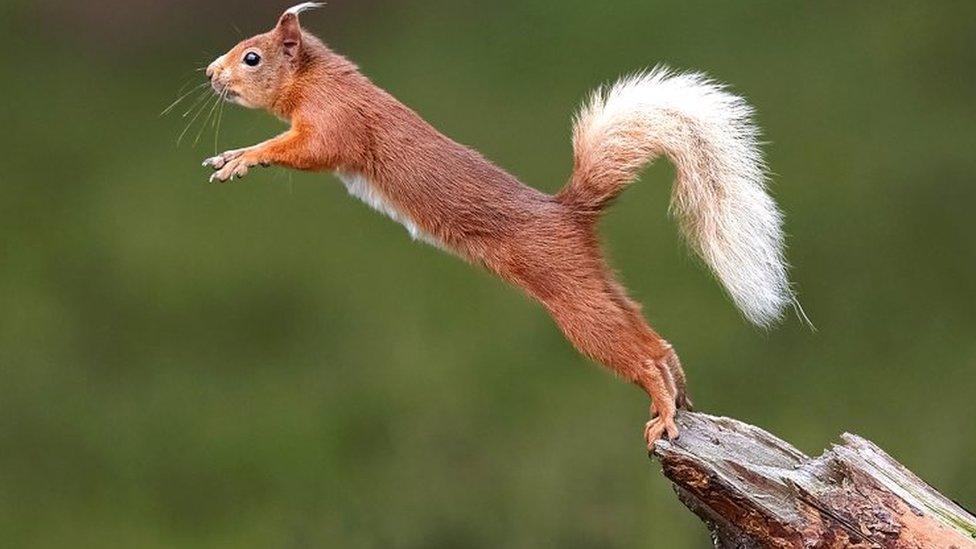Habitat loss 'making animals like compulsive gamblers'
- Published
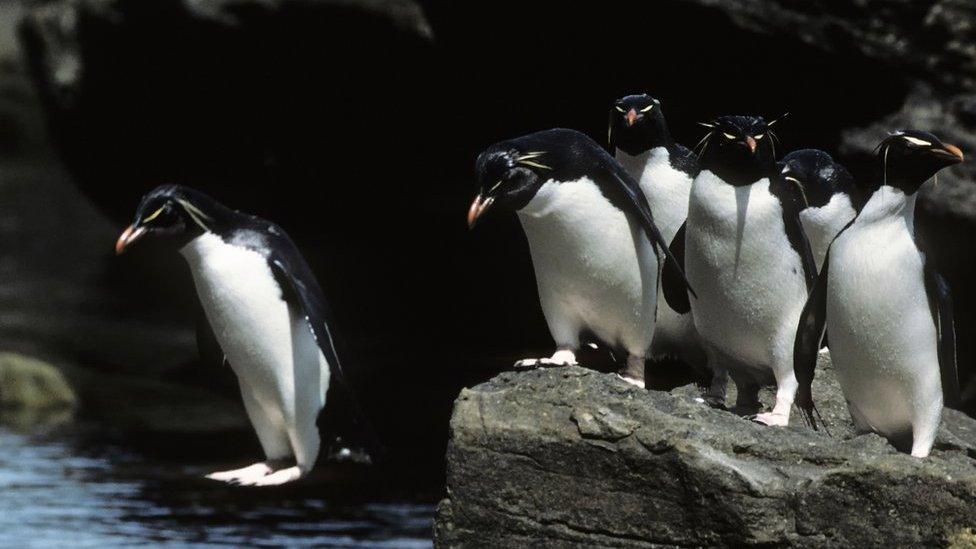
It's not exactly Las Vegas, but a penguin colony off the coast of South Africa gave Swansea University professor Rory Wilson an outcome he would never have bet on.
"To my reckoning there should still have been plenty of fish to go around, yet I was seeing far more chicks starved to death than I'd have expected," he said.
Looking at the data, he found the birds were out fishing for longer - even during night time - in order to feed their young.
After poring over the stats, and showing them to a mathematician colleague, a statistical model soon became apparent.
And it was something usually associated with Sin City than the seas off the coast of Africa: Gambler's Ruin.
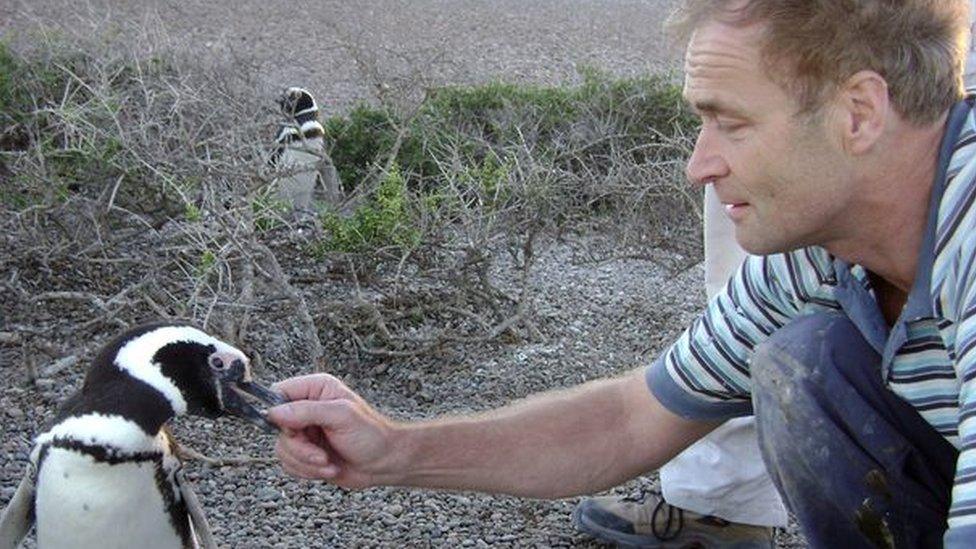
Prof Wilson, a resident expert on the BBC series Animals With Cameras, spent a year monitoring penguins off the coast of Africa.
Prof Wilson explained: "If a gambler at a roulette wheel is betting on red or black, they stand a relatively decent chance of having a win for a comparatively low stake.
"However when the odds of winning are reduced and their losses start to mount, they end up having to bet larger and larger sums as the urgency for a 'big win' increases.
"For a few lucky gamblers the risk will pay off, but some will eventually run out of money.
"It became apparent the same model works for animals.
"The longer an animal doesn't eat, the more energy they will have spent on trying to get a win."
Prof Wilson began by comparing two species of penguins - Magellanic penguins from Argentina and a colony of penguins on an Island off the South African Coast.
He found that adult Magellanic penguins foraging for their one-month-old chicks found the food they required within about six hours.
But extensive fishing in the waters of the African penguins, whose population is now just 1% of a century ago, meant they often had to stay at sea overnight.

Small data trackers were used on all the animals in the study
Data from trackers showed the average hunt would take 7.2 hours for adults to get the food they needed - increasing the risks of chicks starving to death.
Similarly low rates of success were found for cheetahs, possibly because humans are altering their hunting landscape, as well as for condors, who have to compete for carcasses against a wider range of predators.
"I began to plot an equation of energy outlay versus calorific value of food, and time spent hunting or foraging," Prof Wilson added.
"I found for most creatures there was a consistent rate of survival, but you only had to alter the availability of food or habitat by one or two percent and all of a sudden the graph was all over the place, with some lucky animals able to find food immediately, and far more unlucky creatures losing out."
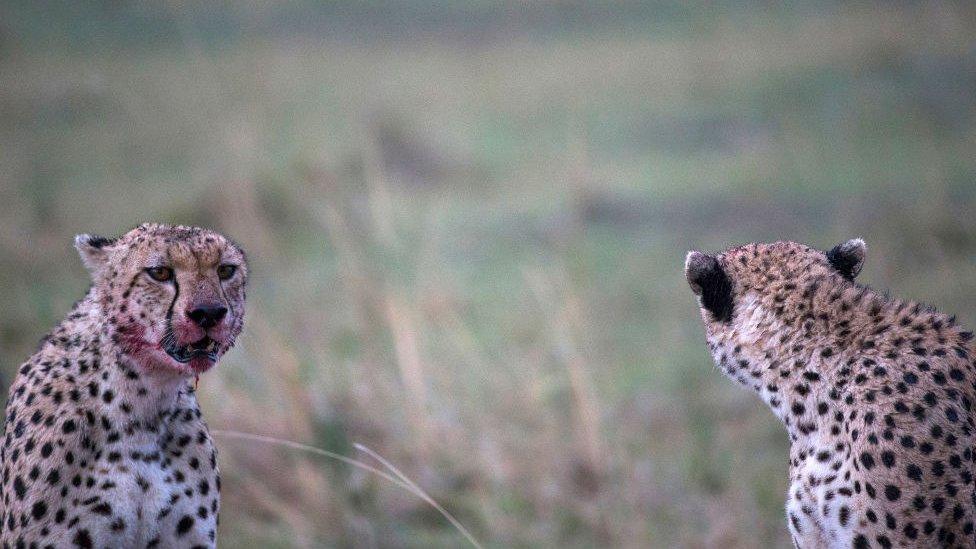
The cheetah population in the wild has fallen from over 120,000 in 1900 to an estimated 9,000 in 2018
Prof Wilson hopes the statistical model can be used to predict the fortunes of species across the globe - which he said could prove pivotal in helping to formulate conservation plans and avoid extinctions.
"For the first time we can show the effect humans are having on animals as a mathematical equation, it's not just opinion, it's there in verifiable black and white," he added.
"If we take these findings seriously we have a chance to reinstate habitats and supplement food sources before it's too late."
The paper, entitled Luck in Food-finding Affects Individual Performance and Population Trajectories, will be published today in journal Current Biology.
- Published9 November 2018
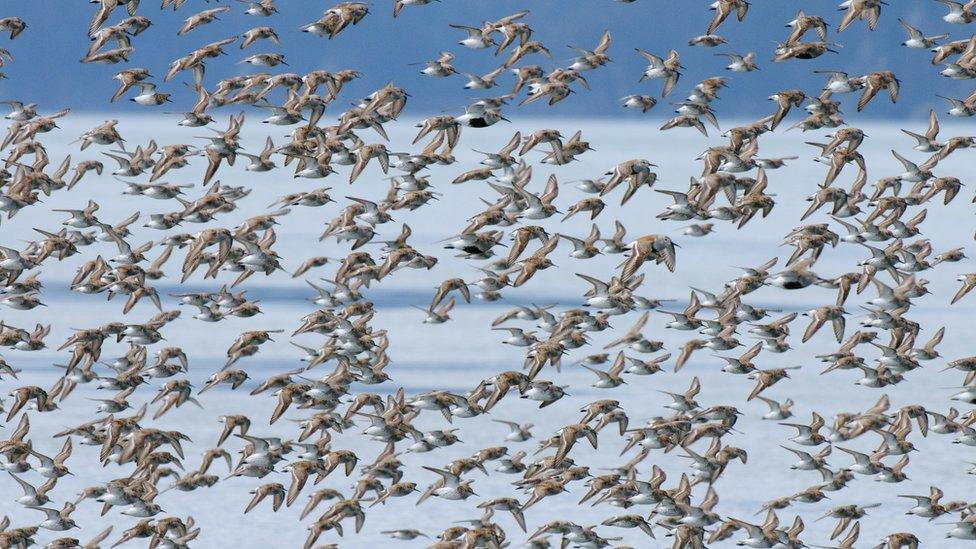
- Published30 October 2018
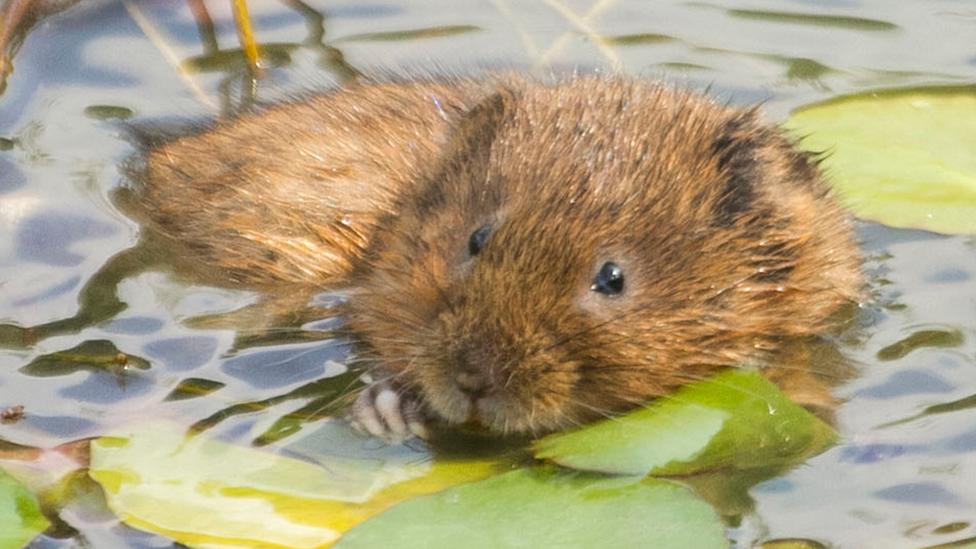
- Published13 June 2018
